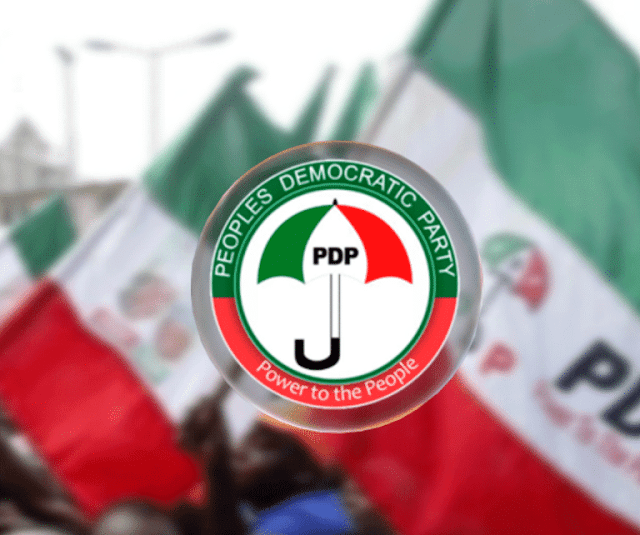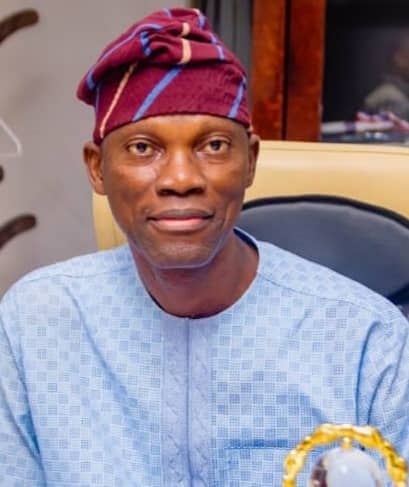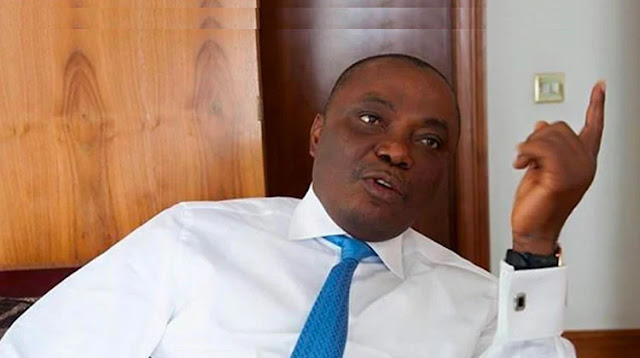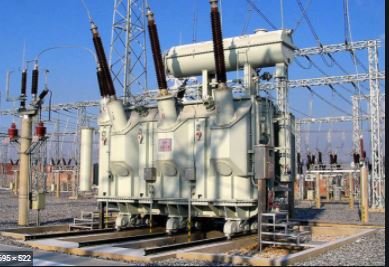The Peoples Democratic Party (PDP), one of Nigeria’s foremost political parties, has made a pivotal decision to maintain its national chairmanship position in the northern region of the country. This resolution stems from the recommendations of a zoning committee chaired by Bayelsa State Governor, Douye Diri, which concluded that the current allocation of the party’s 19 national offices across Nigeria’s geopolitical regions should remain unchanged. The committee’s report is set to be formally presented and ratified at the PDP’s National Executive Committee (NEC) meeting scheduled for Monday, marking a significant moment in the party’s internal dynamics as it navigates its path toward the 2027 general elections.
Background and Context of the Zoning Decision
The PDP’s decision to retain its national chairmanship in the North is rooted in the party’s longstanding tradition of zoning, a power-sharing mechanism designed to ensure equitable representation across Nigeria’s diverse geopolitical zones. Zoning has been a cornerstone of the PDP’s strategy to balance regional interests and foster unity within its ranks. The practice has historically influenced the allocation of key party positions, including the national chairmanship, as well as the selection of the party’s presidential candidate.
The zoning committee, inaugurated by Acting National Chairman Umar Damagum, was tasked with reviewing the distribution of National Working Committee (NWC) offices to ensure fairness and inclusivity. During the committee’s inauguration, Damagum emphasized that the panel’s recommendations would not only shape the allocation of party positions but could also have far-reaching implications for the PDP’s presidential ticket in the 2027 elections. This underscores the strategic importance of the zoning exercise, as it is intricately linked to the party’s broader political calculations.
Historical Context: Zoning and PDP’s Political Strategy
Zoning has been a defining feature of the PDP’s internal governance since its inception in 1998. The policy was adopted to address Nigeria’s complex ethnic and regional diversity, ensuring that no single region dominates the party’s leadership or its presidential candidacy. By rotating key positions and the presidential ticket between the North and the South, the PDP has sought to maintain a delicate balance of power and prevent regional marginalization.
The party’s zoning arrangement has, however, not been without controversy. Ahead of the 2023 general elections, the PDP faced significant internal turmoil when a group of five governors, led by then-Rivers State Governor and current Federal Capital Territory (FCT) Minister, Nyesom Wike, challenged the party’s decision to field former Vice President Atiku Abubakar as its presidential candidate. The dissenting governors, often referred to as the G5, argued that the South should have produced the PDP’s flag bearer, given that former President Muhammadu Buhari, a northerner, had completed two terms in office from 2015 to 2023.
The disagreement over the presidential ticket led to a major crisis within the PDP, culminating in the removal of then-National Chairman Iyorchia Ayu, a northerner from Benue State, on March 28, 2023. Ayu’s ousting was seen as a concession to the dissenting faction, which had insisted on a power shift to the South. Umar Damagum, from Yobe State in the Northeast, was subsequently appointed as Acting National Chairman, a move intended to stabilize the party and restore unity.
The 2023 crisis highlighted the challenges of implementing the PDP’s zoning policy in a highly competitive and polarized political environment. While a committee chaired by then-Benue State Governor Samuel Ortom had recommended an open presidential ticket, allowing candidates from any region to contest, the decision was met with resistance from party leaders who felt it deviated from the party’s power-sharing tradition. The fallout from this crisis continues to shape the PDP’s internal dynamics as it prepares for the 2027 elections.
The Zoning Committee’s Recommendations
The zoning committee, led by Governor Douye Diri, was established to address these lingering tensions and provide a framework for equitable power distribution within the PDP. After extensive consultations, including the Southern Zoning Consultative Summit held in Lagos on Thursday, the committee recommended that the current allocation of national offices be maintained. This means that all 19 national offices, including the chairmanship, will remain in their respective regions as presently constituted.
A senior party official, who spoke to Sunday Punch on condition of anonymity, revealed that the decision to retain the status quo was driven by the need to foster unity within the PDP. “At this point, when the party is working to unite, it would be cumbersome to start reassigning offices,” the official stated. “What we decided is to let whatever is in a region remain there. Positions in the South stay in the South, and those in the North remain in the North.”
This resolution ensures that the national chairmanship, currently held by Umar Damagum from Yobe State, will remain in the North. The decision reflects a pragmatic approach to maintaining stability within the party, particularly in the wake of the 2023 crisis. By avoiding a major reshuffle of party offices, the PDP aims to minimize internal friction and focus on rebuilding its cohesion ahead of the 2027 elections.
Implications for the 2027 Presidential Ticket
While the zoning committee’s report explicitly addresses the allocation of party offices, its implications extend to the PDP’s presidential ticket for 2027. The party official who spoke to Sunday Punch declined to confirm whether the presidential ticket would be zoned to the South, indicating that this issue remains a subject of ongoing deliberation. However, the decision to retain the chairmanship in the North has sparked speculation about the potential zoning of the presidential ticket.
Historically, the PDP has adhered to an unwritten rule that the national chairmanship and the presidential ticket should not both come from the same region. This practice is designed to ensure a balance of power between the North and the South. Given that the chairmanship will remain in the North, some analysts speculate that the PDP may zone its presidential ticket to the South in 2027 as a way to appease southern stakeholders and maintain the party’s regional balance.
The question of the presidential ticket is particularly significant given the PDP’s experience in the 2023 elections. The decision to field Atiku Abubakar, a northerner, was seen by some as a violation of the party’s zoning tradition, particularly after eight years of a northern presidency under Buhari. The resulting internal divisions weakened the PDP’s campaign and contributed to its loss to the All Progressives Congress (APC) in the presidential election. As the party looks ahead to 2027, it will need to carefully navigate the zoning question to avoid a repeat of past mistakes.
The Role of the National Executive Committee (NEC)
The zoning committee’s report is expected to be a focal point of discussion at the PDP’s NEC meeting on Monday. The NEC, which is the party’s highest decision-making body, will review and ratify the committee’s recommendations, effectively formalizing the decision to retain the current allocation of national offices. The outcome of this meeting will provide clarity on the PDP’s leadership structure and set the tone for its preparations for the 2027 elections.
The NEC meeting will also be an opportunity for the party to address other pressing issues, including the reconciliation of factions within its ranks. The PDP has faced significant challenges in recent years, including defections, internal power struggles, and electoral losses. By reaffirming its commitment to zoning and maintaining the status quo, the party hopes to project an image of unity and stability to its members and the broader public.
Challenges and Opportunities for the PDP
The PDP’s decision to retain its national chairmanship in the North is a strategic move aimed at consolidating its position and avoiding further internal conflict. However, the party faces several challenges as it seeks to implement this decision and prepare for the 2027 elections.
One key challenge is managing the expectations of southern stakeholders, who may feel marginalized if the presidential ticket is not zoned to the South. The G5 crisis of 2023 demonstrated the potential for regional grievances to destabilize the party, and the PDP will need to engage in careful diplomacy to prevent a recurrence of such tensions. Party leaders will need to balance the interests of different regions while maintaining a unified front against their political opponents.
Another challenge is rebuilding public confidence in the PDP’s ability to govern effectively. The party’s loss in the 2023 presidential election, coupled with its internal crises, has weakened its standing in Nigerian politics. To regain its footing, the PDP will need to articulate a clear vision for the future and demonstrate its commitment to addressing the country’s pressing challenges, including economic hardship, insecurity, and infrastructure deficits.
At the same time, the decision to maintain the current zoning arrangement presents opportunities for the PDP to strengthen its internal cohesion. By avoiding a contentious reshuffle of party offices, the PDP can focus on rebuilding its grassroots structures, mobilizing support, and developing a compelling platform for the 2027 elections. The retention of the chairmanship in the North may also help to consolidate the party’s support base in the region, which remains a critical battleground in Nigerian politics.
The Broader Political Context
The PDP’s zoning decision must also be viewed in the context of Nigeria’s broader political landscape. The 2027 elections are expected to be highly competitive, with the ruling All Progressives Congress (APC) seeking to extend its hold on power. The PDP will need to position itself as a credible alternative to the APC, offering voters a compelling vision for the future.
The zoning question is particularly significant given the APC’s own approach to power-sharing. In 2023, the APC fielded a southern candidate, Bola Tinubu, who went on to win the presidency. This decision was seen as a strategic move to appeal to southern voters and balance the party’s regional representation after eight years of a northern presidency. The PDP will need to carefully consider its own zoning strategy to counter the APC’s narrative and appeal to a broad cross-section of Nigerian voters.
Moreover, the PDP’s zoning decision will have implications for its alliances with other political parties and regional power blocs. In recent years, Nigeria’s political landscape has become increasingly fragmented, with smaller parties and regional movements gaining influence. The PDP will need to build strategic partnerships to strengthen its electoral prospects, particularly in regions where it has historically faced challenges.
Conclusion
The PDP’s resolution to retain its national chairmanship in the North is a calculated move to maintain stability and unity within the party as it prepares for the 2027 elections. The decision, based on the recommendations of the zoning committee led by Governor Douye Diri, reflects the party’s commitment to its power-sharing tradition while addressing the challenges of a complex and competitive political environment.
As the PDP moves forward, it will need to navigate the delicate balance of regional interests, rebuild public confidence, and articulate a clear vision for Nigeria’s future. The NEC meeting on Monday will be a critical moment for the party to formalize its zoning arrangement and set the stage for its preparations for 2027. By maintaining the status quo and focusing on unity, the PDP hopes to position itself as a formidable force in Nigerian politics, capable of challenging the APC and addressing the aspirations of the Nigerian people. The road ahead will not be without challenges, but with strategic leadership and a commitment to inclusivity, the PDP has the opportunity to reclaim its position as a leading force in Nigeria’s democratic landscape.






